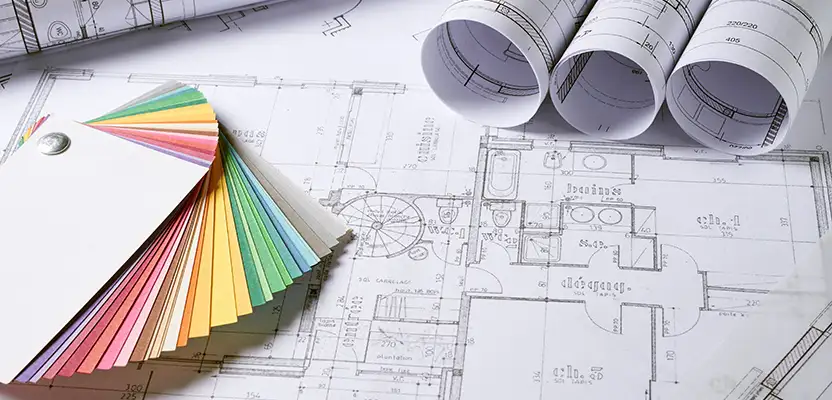Architect Workflow Improvement for More Efficient Project Delivery
Architect Workflow Improvement for More Efficient Project Delivery
Blog Article
Discover the Essential Skills and Qualities Every Architect Have To Possess
As an engineer, you recognize that success in your field exceeds simply technological skills. It has to do with mixing imagination with functionality, promoting cooperation, and taking care of jobs successfully. Each top quality plays an essential function in your capability to design areas that inspire and work well. However what are the details abilities that can truly set you apart? Allow's check out the vital attributes every Architect should cultivate to flourish in this ever-evolving profession.
Imagination and Development
Creativity and development are at the heart of style, driving the design of spaces that influence and work perfectly. You'll continuously discover new materials, methods, and technologies to boost your designs.
You'll additionally draw ideas from different sources-- nature, art, and also day-to-day life can trigger fresh concepts. This capability to blend creativity with functionality enables you to resolve complicated problems, ensuring your designs satisfy both visual and functional requirements.
Strong Interaction Skills
While designing exceptional rooms requires creative thinking, strong interaction abilities are just as essential for architects. You require to communicate your concepts clearly to clients, professionals, and staff member. Paying attention is equally as important; recognizing your customer's vision helps you produce layouts that absolutely meet their demands.
You'll typically need to describe complex ideas in a manner that's simple to realize, whether you exist a proposition or discussing materials. Reliable interaction cultivates cooperation, making sure every person is on the very same page throughout the job.
Structure connections is crucial, also. When you develop count on and relationship, customers are more probable to share their concerns and responses, bring about far better outcomes.
Finally, do not take too lightly the power of body language and visual help. They can boost your message and make your discussions a lot more appealing. Strong communication skills not just elevate your styles yet also reinforce your expert connections in the building world.
Technical Effectiveness in Design Software
As you navigate the ever-evolving world of architecture, grasping layout software program becomes necessary for converting your imaginative ideas right into concrete plans. Acquainting yourself with programs like AutoCAD, Revit, and SketchUp will not only improve your design capabilities however likewise improve your process. These devices allow you to develop thorough illustrations, 3D models, and even simulations that can help you visualize and offer your principles better.
Exceling in these software applications also boosts your cooperation with professionals and designers, as everybody can function from the very same electronic foundation. Furthermore, your ability to adapt to brand-new modern technologies will keep you competitive in the area. On a regular basis updating your skills and exploring brand-new attributes can establish you apart from your peers, guaranteeing your layouts are specific and ingenious. Ultimately, technological efficiency in layout software is a foundation of effective style, aiding you bring your visions to life.
Understanding of Engineering Concepts

Comprehending engineering concepts likewise allows you to expect prospective obstacles early in the layout process. You can make enlightened choices that improve your layouts when you're mindful of just how different products behave under various problems. Your styles must not just be cosmetically pleasing but sustainable and also functional.
Additionally, a strong grasp of design principles allows you to introduce within restraints. You can press imaginative borders while still sticking to safety criteria. Ultimately, this understanding enhances your architectural practice and establishes you apart in an affordable area.
Project Monitoring Abilities
Reliable task management abilities are crucial for engineers, enabling you to oversee try this all facets of a project from conception to completion. You'll require to coordinate with numerous stakeholders, including engineers, customers, and professionals, making sure everyone's on the very same page. Establishing clear goals, timelines, and budgets is fundamental; it aids you maintain the task on course and within range.
As a designer, you ought to likewise be proficient in danger administration, determining possible issues before they intensify. Solid interaction abilities are vital, enabling you to verbalize your vision and motivate your group. You'll gain from being organized and detail-oriented, as this aids streamline processes and avoid costly delays.
Additionally, versatility is key; projects typically develop, and being adaptable enables you to respond efficiently to modifications. Eventually, your task administration skills can greatly affect the success of your building ventures, guaranteeing you supply top quality results in a timely manner and within budget plan.
Interest to Information
While managing projects is vital, your attention to information can make a considerable distinction in the high quality of your work. Every line you attract, every material you select, and every small specification you note adds to the general success of a project. You need to be careful, ensuring that your styles not just meet aesthetic requirements however likewise follow constructing laws and codes.
Missing out on even a tiny detail can result in expensive revisions or safety and security concerns down the line. By cultivating an eager eye for information, you enhance your capacity to identify prospective troubles prior to they rise. This caution not just saves you time and sources but additionally constructs your reputation as a trusted Architect. Keep in mind, it's typically the tiniest details that boost a job from great to outstanding. Embrace this ability, and allow it guide your style process, ensuring that your vision is performed flawlessly.
Flexibility and Problem-Solving Skills
As an architect, you'll typically encounter unforeseen adjustments in design and project needs. Your capacity to welcome these shifts and discover cutting-edge services is necessary for success. Remaining versatile in your strategy not only enhances your analytic skills however likewise maintains your tasks on track.
Embracing Modification in Style
Accepting change in layout is important for architects, specifically when steering progressing customer requirements and emerging technologies. You require to grow versatility, visit the website as projects typically change instructions based upon new understandings or constraints. Being open to alter permits you to discover ingenious strategies and create options that resonate with your clients.
When encountered with difficulties, your analytical skills enter into play. You'll often require to rethink ideas and change plans on the fly, ensuring that the final end result straightens with the client's vision while satisfying safety and regulatory requirements. By being clever and versatile, you not just enhance your designs yet additionally build trust with your customers, verifying that you can browse the intricacies of modern-day design successfully.
Ingenious Solutions to Difficulties

Adaptability in Job Monitoring
While steering the complexities of task monitoring, flexibility ends up being an essential asset for engineers. You'll commonly encounter unanticipated difficulties, from layout modifications to budget constraints, requiring quick reasoning and adaptability. Welcoming adjustment allows you to pivot your techniques and discover cutting-edge services, guaranteeing project success.
Solid problem-solving abilities are vital; they allow you to examine circumstances, evaluate options, and apply efficient services on the fly. When collaborating with varied groups, being open to responses and different ideas cultivates collaboration and triggers imagination.
Often Asked Questions
What Educational History Is Required to End Up Being a Designer?
To become a designer, you'll require at least a specialist level in design, frequently a Bachelor's or Master's. Finishing a teaching fellowship and obtaining licensure through exams is necessary for your profession advancement.
Exactly How Vital Is Networking in the Design Field?
Networking's important in design. It helps you develop partnerships, discover job opportunities, and gain insights from skilled specialists. By getting in touch with others, you enhance your job leads and remain updated on market trends and advancements.
What Are the Usual Occupation Paths for Architects?
Common occupation courses for architects include style roles in companies, job monitoring, urban preparation, and specialized areas like lasting architecture. Architect. You might also explore teaching or consulting, depending upon your experiences and rate of interests
How Can Designers Stay Updated With Sector Trends?
To stay upgraded with industry fads, you need to routinely attend meetings, sign up with specialist organizations, register for relevant publications, and involve with online forums. Networking with peers likewise assists you gain understandings right into emerging advancements in style.
What Function Does Sustainability Play in Modern Design?
Sustainability forms modern-day style by highlighting energy performance, resource preservation, and eco-friendly materials. You'll develop areas that decrease environmental impact, improve resident health, and respond to environment obstacles, making your designs much more pertinent and impactful.
While creating impressive rooms needs imagination, solid interaction skills are simply as crucial for designers. Strong communication abilities not just elevate your styles yet additionally reinforce your expert partnerships in the building world.
Efficiency in Get More Information style software lays the foundation for a deeper understanding of design principles, which is important for architects.As an architect, you'll often deal with unforeseen changes in layout and job demands.Embracing modification in layout is essential for designers, especially when steering developing customer demands and arising innovations.
Report this page